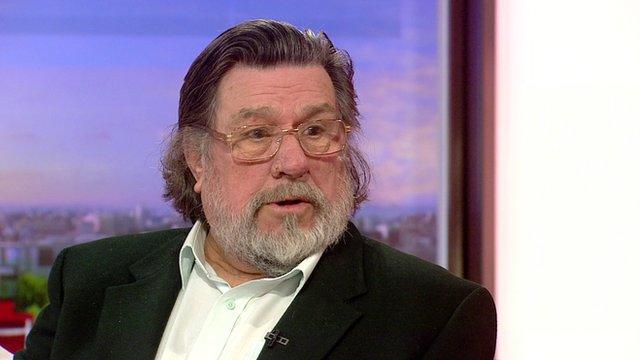Shrewsbury 24: Government rejects calls to release files
- Published
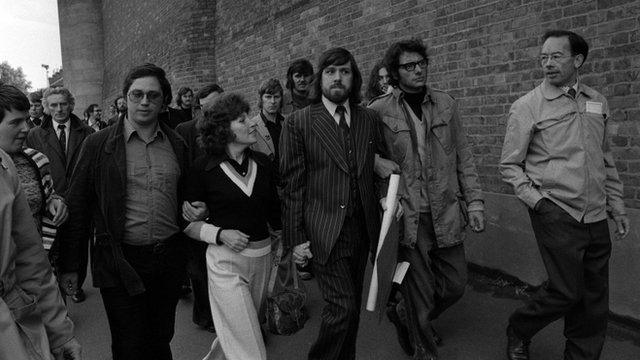
Eric Tomlinson, better known by his stage name Ricky (C), was one of the "Shrewsbury 24"
The government has rejected calls to release confidential files about a trade union dispute in the 70s, despite claims of "compelling new evidence".
The papers relate to the so-called Shrewsbury 24, who were charged with various offences after a national building workers' strike.
Minister Mike Penning said the files could not be released on the grounds of national security.
Shadow home secretary Andy Burnham said it amounted to "a cover up".
The government says the files do not relate to the safety of the men's convictions.
'Politically-motivated show trial'
Prior to the Westminster debate, Mr Burnham indicated that a failure to release all documents about the Shrewsbury 24 case could jeopardise Labour support for government plans to extend spying powers.
Addressing MPs during the debate, Mr Burnham said support "was not conditional upon that", adding: "I'm just asking the government help build trust so that we can then help them get this legislation right".
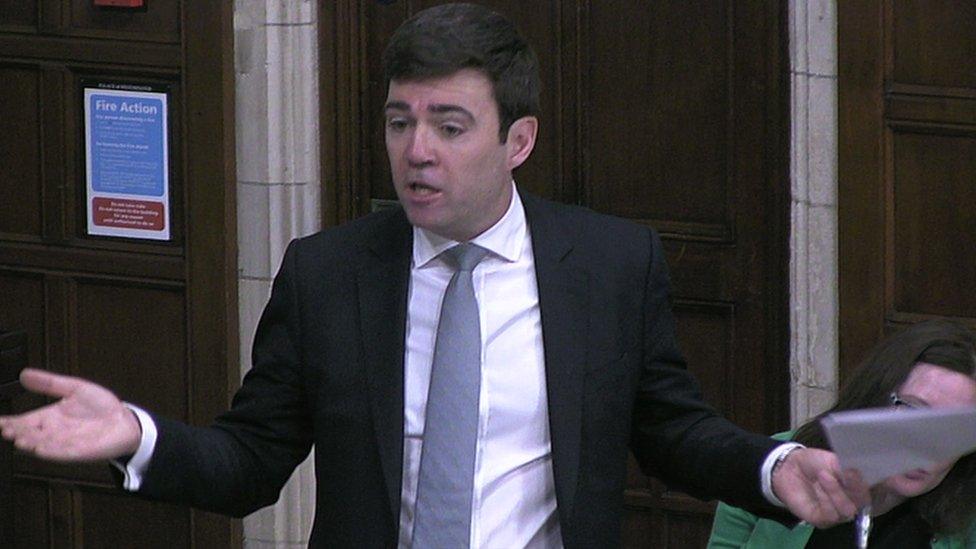
Mr Burnham appealed to the government to make the files public
The building workers who became known as the Shrewsbury 24 included Ricky Tomlinson, now a television actor who starred in The Royle Family and Brookside.
They picketed building sites in Shrewsbury in the first national building workers' strike in 1972.
They were later charged under the 1875 Conspiracy Act with offences including intimidation and damage to property. Six were sent to prison.
Mr Tomlinson served 16 months in jail, but has always maintained his innocence.
BBC Rewind looks back on the case of the Shrewsbury 24, who were charged with offences relating to picketing building sites in 1972.
Mr Burnham presented a dossier of evidence that he claimed shows the 24 were victims of a "politically orchestrated show-trial", during the Westminster Hall debate.
He said the new files showed the "highest levels" of political involvement in the decision to bring charges against the builders, the manipulation of witnesses, and attempts to influence the judge and trial jury.
"The continuing failure to disclose [the papers] will lead people to conclude that it has less to do with national security and more to do with the potential for political embarrassment," he added.
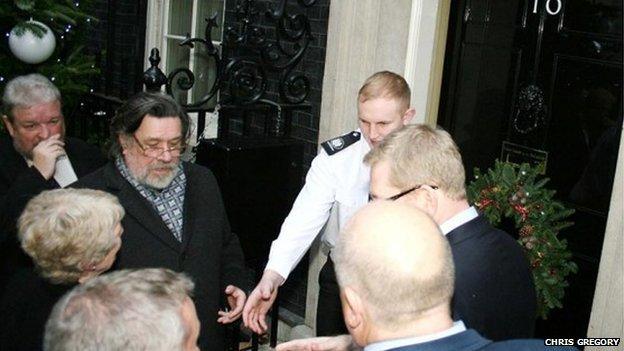
Campaigners, including Ricky Tomlinson, took a 100,000-signature petition to Downing Street
Home Office minister Mike Penning said the department was looking over old documents to see whether they could be related to the case.
But he told MPs the government was standing by its decision, taken partly by civil service boss Sir Jeremy Heywood, not to release the papers sought by campaigners because they are not relevant to the 24.
"There has been a decision, not my decision but a decision made by the cabinet secretary and Mr Letwin, to say that what they have seen.
"I would think the cabinet secretary is fairly independent on these things, that there is no relevance to the documents that they have withheld to the case of the Shrewsbury 24 and the Cabinet Office and the government are standing by their decision not to release those documents on the basis of national security."
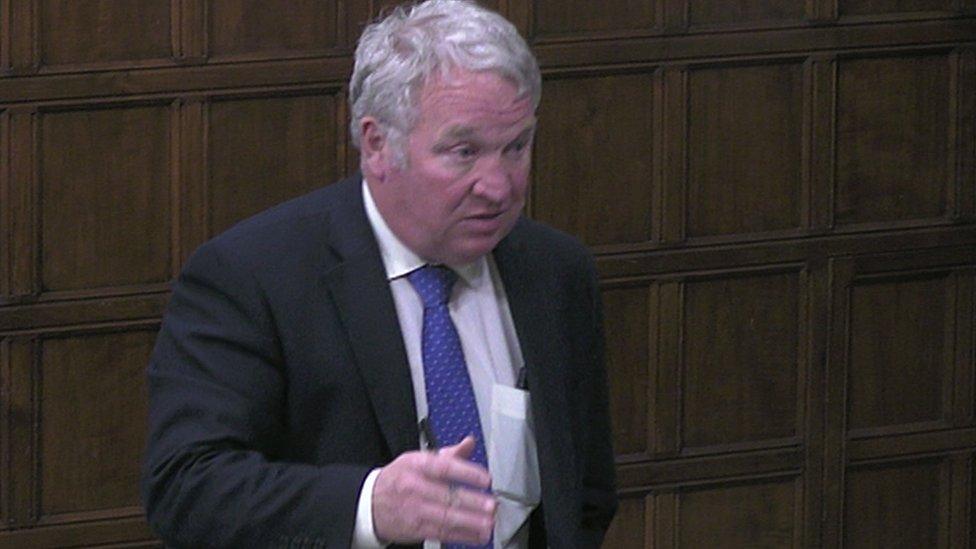
Mr Penning said successive governments had concluded it would be wrong to disclose the documents
Mr Penning did offer to meet campaigners, although he indicated he did not expect to announce any change in government policy.
He said the dossier presented by Mr Burnham should be passed to the Criminal Cases Review Commission (CCRC).
The CCRC is looking at the case and has had access to all the documents they have requested, although this does not include the withheld papers.
In October, Cabinet Minister Oliver Letwin decided not allow the release of the Shrewsbury 24 papers for reasons of national security, and said the decision would not be reviewed until 2021.
In 2013, a 100,000-signature petition calling for the men's names to be cleared was presented to Downing Street.
- Published23 January 2014
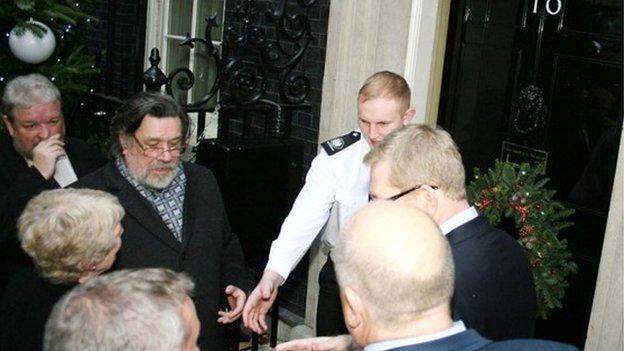
- Published23 September 2014
